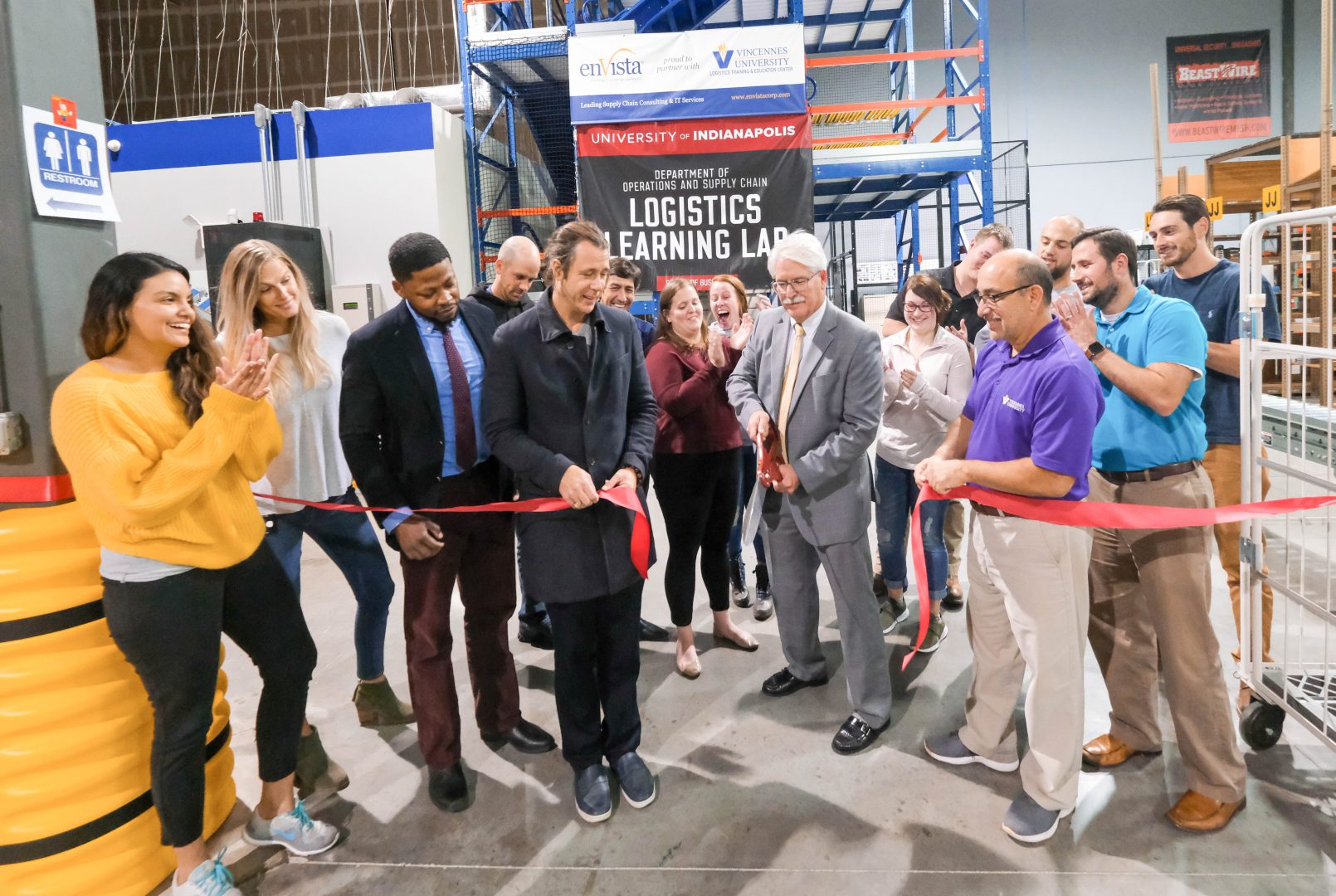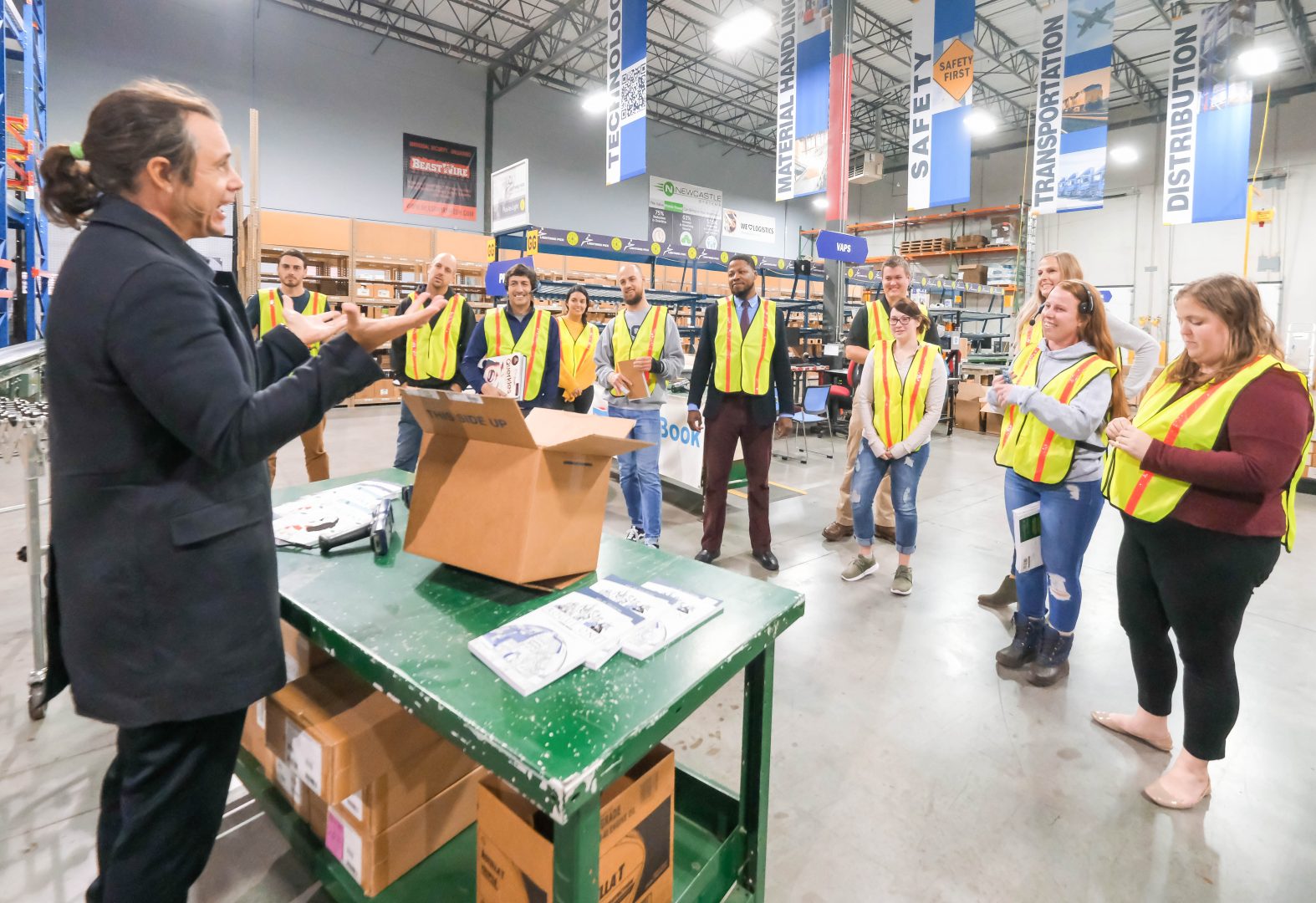The University of Indianapolis opened a Logistics Learning Lab on Oct. 23, that was created as the result of a partnership between the School of Business, SOB’s Department of Operations and Supply Chain Management and the Vincennes University Logistics Training and Education Center. The partnership is meant to provide real-life, educational experiences and training with VU LTEC’s advanced level technology and equipment for those who are involved in the logistics field, according to a press release from UIndy.
The lab puts students in a real-life situation so they are more prepared for what they will be doing after they graduate. Students will participate in simulations and drills that have been put together by the VU LTEC staff and Craig Seidelson, UIndy SOB assistant professor of operations and supply chain management, according to the press release.

“What I found was in the field of logistics, when we would send the students out to work in the field, there was a huge gap between going from the classroom to going into the field,” Seidelson said. “They really didn’t have that middle-ground. The idea was that if we could create a lab… we could put them in a real environment, handling simulated situations. The simulated situations compliment what they’re going to see when they’re in the field.”
The lab is located in a 30,000 square feet warehouse in Plainfield, IN. The warehouse is inside VU LTEC, and the proximity of it is one of the many reasons why Seidelson agreed on the partnership with VU LTEC.
“They’re [Vincennes University] close, they have a facility, they’re dealing with actual customers, they have a willingness to let the students come in and work on these situations,” Seidelson said. “To me, that was the fit.”
In some cases, the lab requires corequisite courses in order to be enrolled in it. According to Seidelson, being involved in the lab is required for those who take the Supply Chain Management 485 class and the Master of Business Administration 660 class. For students who cannot drive themselves to the lab, they can carpool with other students, according to Seidelson. Taking the lab is the same concept as having textbooks or homework in class. Those required textbooks or homework is just in an actual environment, he said.

The lab is meant to challenge students who haven’t been exposed to the industry-specific skills that they require in order to master the field of logistics. According to Seidelson, it is important to put the students in unfamiliar situations and have them solve the problems as a team.
“The idea with the lab is to get you in an environment you should be familiar with, but you’re not, and let’s give you a problem that you don’t necessarily have all the tools to solve,” Seidelson said. “I know you’re going to learn out of experience, not by being successful.”
The resources at the lab range anywhere from robotics to construction. According to Seidelson, a simulation involving robots has been in the works for about two years.
“More and more of the logistics is being done by robots and automation,” Seidelson said. “Some of the things students do that I think is fun is they get to use some of the latest technology.”
Senior accounting major Zoe Sheeks finished her management work in the lab this semester. Sheeks is taking the fast-track MBA courses, so she was involved in the lab for her Master of Business Administration 660 class. The lab gives students a better understanding of how supply-chain management works through the activities they do as a group, Sheeks said.
“Basically we do simulations,” Sheeks said. “We get to run through actual warehouse scenarios and see what’s wrong with them and how to do it, that way we’re able to apply what we’re learning in supply-chain management and apply it to the real world and figure out how it actually works.”
The lab opened at the beginning of the first semester of the 2019-2020 academic year. Students who have been enrolled in the lab have just recently finished the first round of lab work.
“We need to give the students the talent and the skills they need in order to be successful,” Seidelson said. “The lab is a way to ease them into that.”







